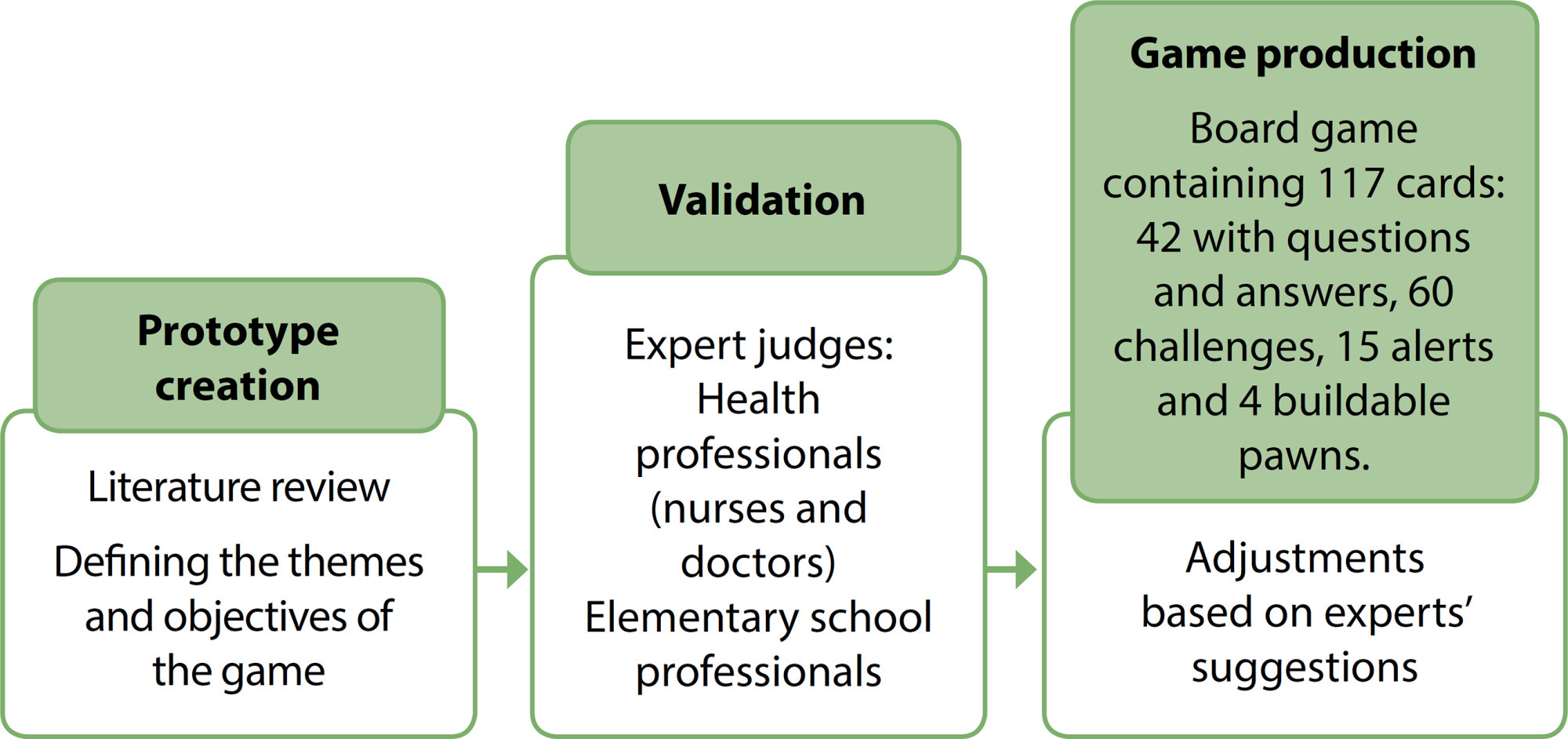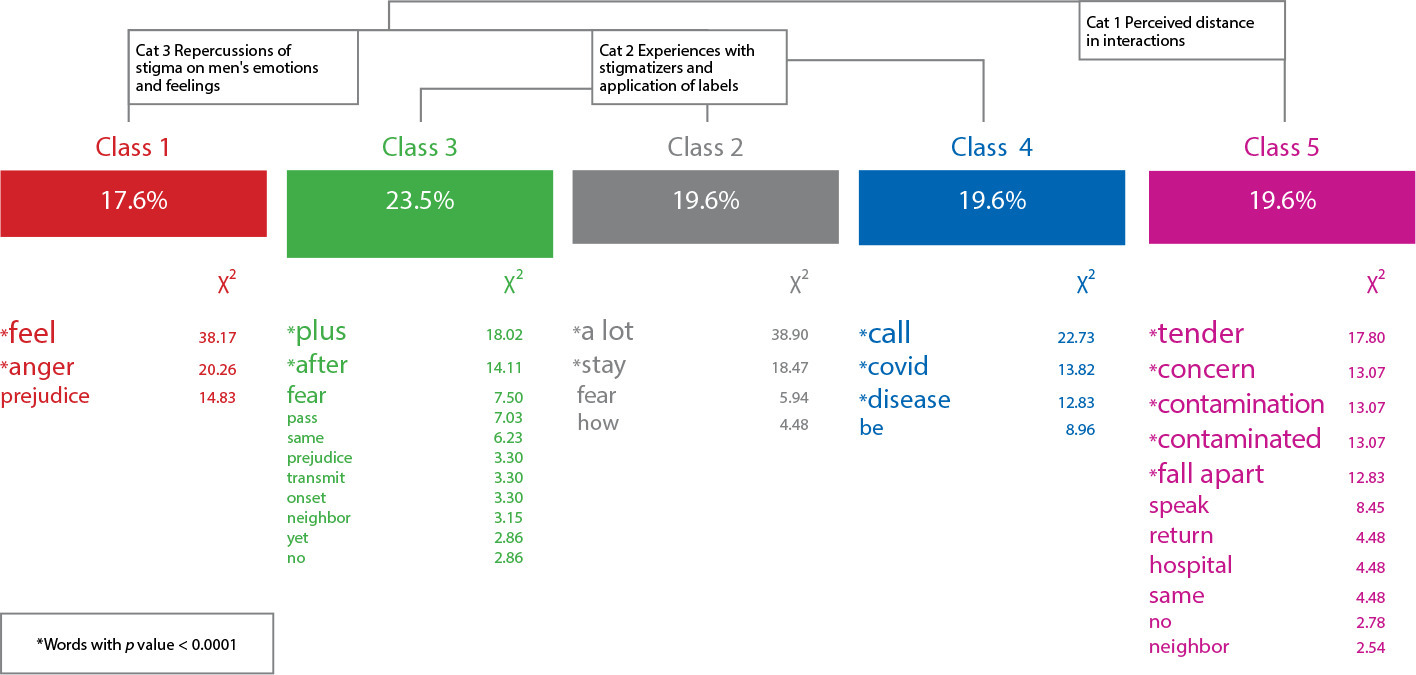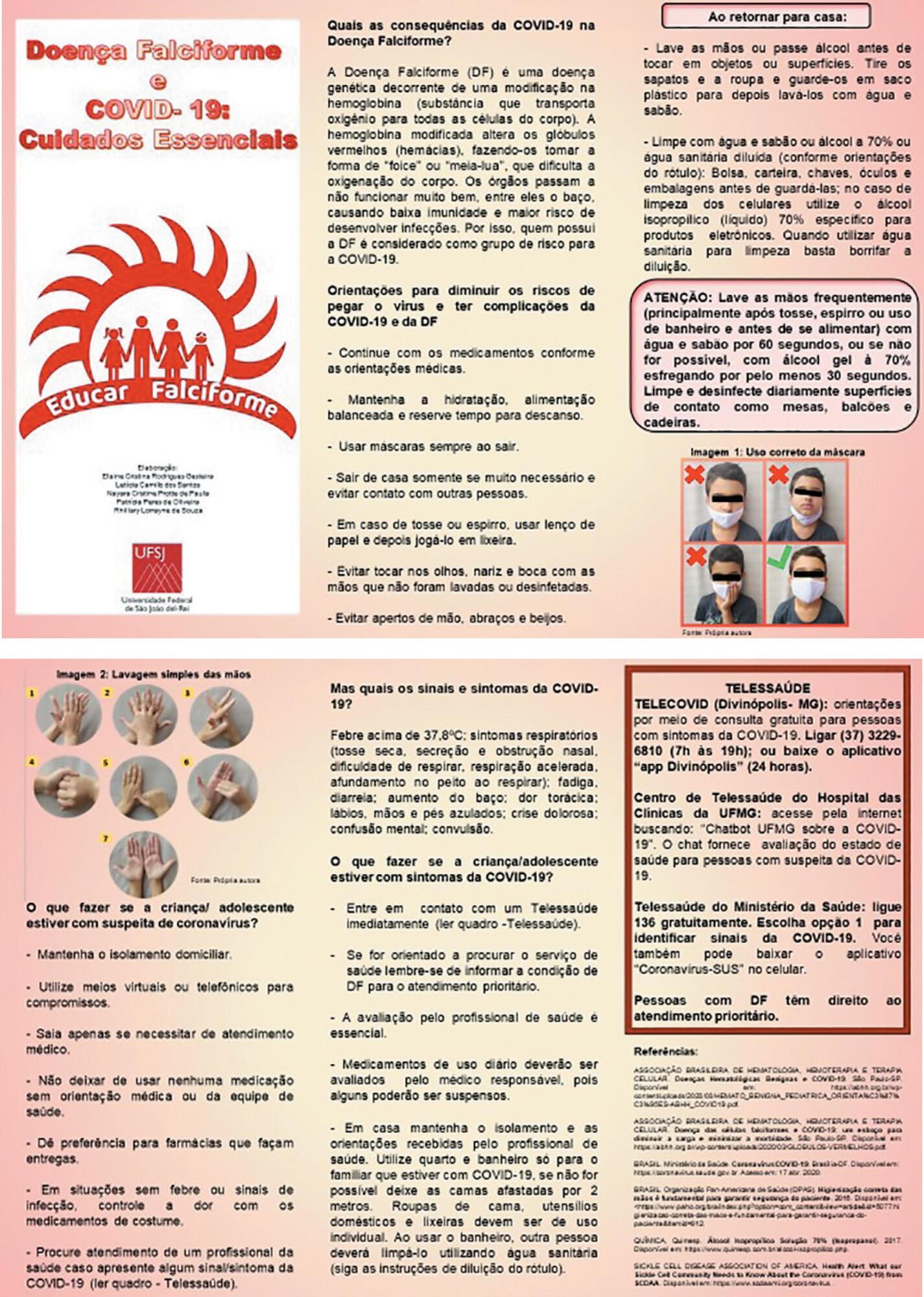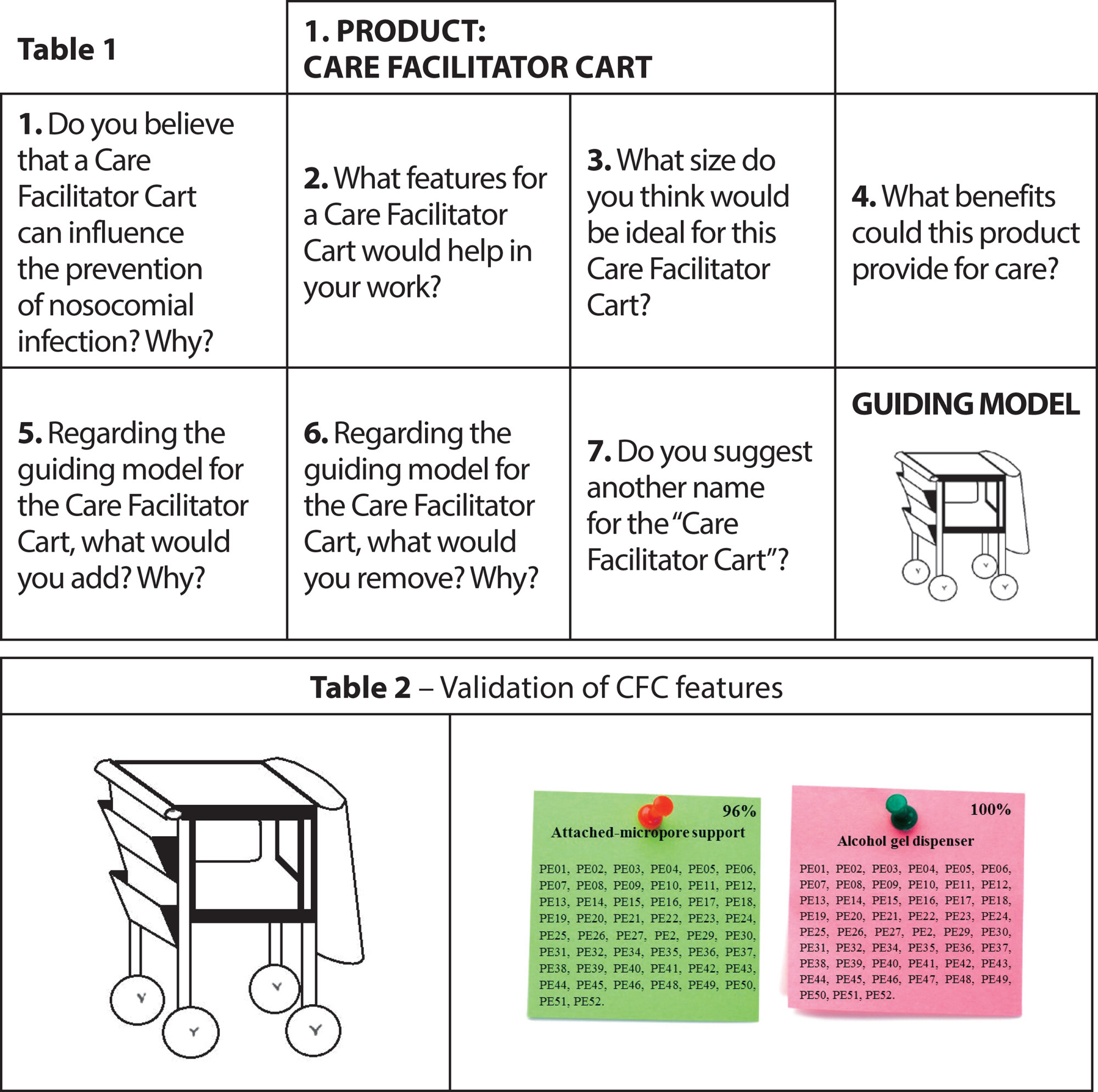-
01-01-2016
Epistemology of nursing care: a reflection on its foundations
Revista Brasileira de Enfermagem. 2016;69(6):1240-1245
Abstract
Epistemology of nursing care: a reflection on its foundations
Revista Brasileira de Enfermagem. 2016;69(6):1240-1245
DOI 10.1590/0034-7167-2016-0331
Views0See moreABSTRACT
Objective:
to reflect on nursing care and its epistemology from its historical, theoretical, philosophical, spiritual dimensions and as a social practice.
Method:
discussions originated in the discipline “Epistemology of caring”, from the graduate nursing program of the School of Nursing, Federal University of Minas Gerais, and in critical analysis of nursing literature together with the professional practice of the authors.
Results:
we identified the necessity of developing a critical conscience on health care provision, research, and teaching, as well as on challenges in maintaining high standards of working interpersonal relationships, which has a profound impact on population health.
Conclusion:
we suggest the rescue of integrality, humanization, unity, and spirituality in researches and practices of individual, familiar, and community care, as an advance in incorporating epistemology of caring in nursing.
-
01-01-2016
Health needs and nursing care
Revista Brasileira de Enfermagem. 2016;69(6):1236-1239
Abstract
Health needs and nursing care
Revista Brasileira de Enfermagem. 2016;69(6):1236-1239
DOI 10.1590/0034-7167-2016-0128
Views0See moreABSTRACT
Objective:
to present the concept of needs according to different approaches to discuss the possibility of health care that incorporates a broader view of human vulnerabilities in health services.
Methods:
the arguments are founded on nursing theorists who worked on the construction of frameworks relevant to care, based on needs and on philosophers who show the possibility of identifying the vulnerabilities of human beings, defending art as a therapeutic instrument that can promote health care.
Conclusion:
although care can acquire a new dimension with the introduction of art, according to certain perspectives, philosophical studies on ethics and aesthetics should be resumed to identify human vulnerabilities that can in fact be compensated by sensible understanding of the outer world. To incorporate art in nursing care requires studies from theorists to be recovered, deepening concepts and working on empirical investigations for their adequate use.
-
01-01-2016
Case studies and role play: learning strategies in nursing
Revista Brasileira de Enfermagem. 2016;69(6):1231-1235
Abstract
Case studies and role play: learning strategies in nursing
Revista Brasileira de Enfermagem. 2016;69(6):1231-1235
DOI 10.1590/0034-7167-2016-0277
Views0See moreABSTRACT
Objective:
to report professors’ experience in a public university of Southern region of Brazil using case studies and role play as learning strategies for nursing care of hospitalized adults.
Method:
learning experience report from the Nursing Care of Adults I class of nursing undergraduate course.
Results
the development of case studies and role play considered health care needs from epidemiological profile of chronic noncommunicable diseases morbidity and mortality, nursing as an assisting method, and social aspects of hospitalized individuals. Role play planning was made by creating a stage in laboratory of practices and dialogues comprising students and professors interaction.
Conclusion
case studies and role play encouraged students to active search for learning and brought theory closer to real health care situations.

-
01-01-2016
Politicy of care in the criticism towards gender stereotypes
Revista Brasileira de Enfermagem. 2016;69(6):1223-1230
Abstract
Politicy of care in the criticism towards gender stereotypes
Revista Brasileira de Enfermagem. 2016;69(6):1223-1230
DOI 10.1590/0034-7167-2016-0441
Views0See moreABSTRACT
Objectives:
analyze gender inequalities among Brazilian women in Portugal and in contemporary nursing based on care politicity in the light of gender; disclose oppression of the female produced by the stereotypes that look upon women as natural caregivers; point out politicity to deconstruct gender stereotypes.
Method:
theoretical reflection with narrative review of literature to analyze classic references in the feminist epistemology combined with the care politicity thesis.
Results:
the similarities between the stereotypes of the Brazilian Eves and the Portuguese Maries as either the sexualized or sanctified nurse are inserted in the Jewish-Christian moral genealogy that reaffirms the subservience of the female to the male.
Conclusion:
by attaching priority to care that needs non-care to expand the possibilities of care giving, the theoretical assumption of politicy of care can contribute to subvert the stereotypical images of Brazilian women in Portuguese lands and in contemporary nursing.
-
01-01-2016
Strategies for thirst relief: integrative literature review
Revista Brasileira de Enfermagem. 2016;69(6):1215-1222
Abstract
Strategies for thirst relief: integrative literature review
Revista Brasileira de Enfermagem. 2016;69(6):1215-1222
DOI 10.1590/0034-7167-2016-0317
Views0See moreABSTRACT
Objective:
to analyze the strategies used to relieve the thirst of hospitalized patients.
Method:
an integrative review, for which the databases PubMed, LILACS, CINAHL and the group of references organized by the Group for Study and Research of Thirst were selected for the search of primary studies, with the keywords: thirst, ice, cold, intervention, nursing care, artificial saliva.
Results:
the review sample was composed of ten primary studies. The strategies found were: low temperature using frozen gauze, ice chips, and cold water, menthol associated with cold strategies, chewing gum, acupressure, and the use of a thin straw, substitute saliva, and early fluid ingestion.
Conclusion:
the temperature was presented as a predominant and effective strategy to relieve the thirst for surgical patients in intensive care and hemodialysis treatment.

-
01-01-2016
Care of the self and power relations: female nurses taking care of other women
Revista Brasileira de Enfermagem. 2016;69(6):1204-1214
Abstract
Care of the self and power relations: female nurses taking care of other women
Revista Brasileira de Enfermagem. 2016;69(6):1204-1214
DOI 10.1590/0034-7167-2016-0021
Views0See moreABSTRACT
Objective:
to analyze the care of self of female nurses and the power relations established by them in the care of other women.
Method:
integrative review of literature published between 2005 and 2015. There were 25 publications in the sample.
Results:
qualitative state of the art with reference domain of a liberating perspective, based on humanization, autonomy and empowerment as a risk reduction strategy in the practice of care to women. The findings suggest solidified power relations among female nurses and women, focused on professional domain concentrated on nurse education under the patriarchal and society’s normalization discourse. Some studies consider the importance of understanding power in a capillary way, operating on the bodies of individuals.
Conclusion:
there is little discussion about the care of self of nurses and the effects on their professional practice, indicating gaps in knowledge in this field.

-
01-01-2016
Nursing competencies in promoting the health of individuals with chronic diseases
Revista Brasileira de Enfermagem. 2016;69(6):1195-1203
Abstract
Nursing competencies in promoting the health of individuals with chronic diseases
Revista Brasileira de Enfermagem. 2016;69(6):1195-1203
DOI 10.1590/0034-7167-2016-0312
Views0See moreABSTRACT
Objective:
to identify nurse’s competencies related to health promotion of individuals with chronic cardiac disease, in the light of the Galway consensus.
Method:
integrative literature review was conducted to search for studies published between 2010 and 2014 in the databases LILACS, BDENF, IBECS; and PubMed in February 2015. The 21 included studies were analyzed according to the eight domains of competence: Catalyzing change, Leadership, Evaluation, Planning, Implementation, Assessment, Advocacy and Partnerships.
Results:
all domains of competence were included in the nursing interventions in health promotion of chronic cardiac patients, and the Planning and Evaluation were the most evident competences.
Conclusion:
the results of this research highlighted the nurse as an agent capable of operating care management, in order to improve coordination of the latter with work and education and, thus, the health care of the population.

-
01-01-2016
Assisted therapy with dogs in pediatric oncology: relatives’ and nurses’ perceptions
Revista Brasileira de Enfermagem. 2016;69(6):1188-1194
Abstract
Assisted therapy with dogs in pediatric oncology: relatives’ and nurses’ perceptions
Revista Brasileira de Enfermagem. 2016;69(6):1188-1194
DOI 10.1590/0034-7167-2016-0243
Views0See moreABSTRACT
Objective:
to understand the perception of nursing staff professionals and legal guardians of children and adolescents with cancer regarding Assisted Therapy with dogs.
Method:
qualitative study based on participant observation conducted with 16 participants in a reference hospital of child cancer. We applied an in-depth interview and interpreted the data according to a content analysis technique.
Results:
the practice is admittedly beneficial to participants despite the fact they do not understand its true objectives and therapeutic applications. Participants only associate it with something distracting and entertaining without realizing the occurrence of a more complex process behind it, which comprises changes besides the emotional ones (more easily perceived).
Conclusion:
the perceptions of participants reinforce recommendations that can be applied in the hospital environment, also showing that the therapy in question can become an effective technology to promote the health of children and adolescents with cancer.
-
REFLECTION12-21-2020
War against the COVID-19 pandemic: reflection in light of Florence Nightingale’s nursing theory
Revista Brasileira de Enfermagem. 2020;73:e20200371
Abstract
REFLECTIONWar against the COVID-19 pandemic: reflection in light of Florence Nightingale’s nursing theory
Revista Brasileira de Enfermagem. 2020;73:e20200371
DOI 10.1590/0034-7167-2020-0371
Views0See moreABSTRACT
Objective:
To reflect on the relationship and importance of the environmental theory regarding practices for promotion, prevention, and treatment of COVID-19.
Methods:
A theoretical-reflexive study about the COVID-19 pandemic in light of the environmental theory proposed by Florence Nightingale.
Results:
It is observed that the application of the theoretical foundations proposed by the environmental theory is related to the current practices used in the fight against the COVID-19 pandemic.
Final Considerations:
It is believed that the theoretical basis is fundamental for the critical-reflexive training of the nursing professional, for the consolidation of Nursing as a science; therefore, it could provide a foundation in nowadays battle against the pandemic.
-
08-20-2021
Validation of an educational game about first aid for schoolchildren
Revista Brasileira de Enfermagem. 2021;74(6):e20201107
Abstract
Validation of an educational game about first aid for schoolchildren
Revista Brasileira de Enfermagem. 2021;74(6):e20201107
DOI 10.1590/0034-7167-2020-1107
Views0See moreABSTRACT
Objectives: to validate the content and appearance of an educational game about first aid for schoolchildren with experts in education and health.
Methods: this is a methodological, quantitative and descriptive research, carried out using the Delphi technique, using an online collection instrument, covering 55 items of the game. Content and appearance assessment was performed by 26 judges. The data were analyzed using Content Validity index.
Results: the final prototype is presented in a board format, composed of four buildable pawns and 117 cards between questions, alerts and challenges. Overall Content Validity index of 0.95 and greater than 0.8 was obtained for all items in two Delphi rounds.
Conclusions: the educational game validated by experts is a pedagogical tool for teaching first aid to schoolchildren as an option to traditional educational practices.

-
ORIGINAL ARTICLE06-27-2019
Infection related to Klebsiella pneumoniae producing carbapenemase in renal transplant patients
Revista Brasileira de Enfermagem. 2019;72(3):760-766
Abstract
ORIGINAL ARTICLEInfection related to Klebsiella pneumoniae producing carbapenemase in renal transplant patients
Revista Brasileira de Enfermagem. 2019;72(3):760-766
DOI 10.1590/0034-7167-2019-0009
Views0See moreABSTRACT
Objective:
To evaluate the risk factors related to Klebsiella pneumoniae carbapenemase infection after renal transplantation.
Methods:
This was a retrospective epidemiological (case-control) study, conducted from October 2011 to march 2016. Transplanted patients with infection by this bacteria during hospitalization were selected as cases. The controls were paired by age, sex, type of donor and transplant time. The proportion of cases and controls was 1:2.
Results:
Thirty hundred and five patients were included in the study (45 cases and 90 controls). The risk factors found for infection by KPC were: time of hospitalization after the transplant (OR: 4.82; CI95% 2.46-9.44), delayed kidney function (OR: 5.60; CI95% 1.91-11.01) and previous infectious for another microorganism ( OR: 34.13 CI95% 3.52-132.00).
Conclusion:
The risk of acquisition of this bacterium was directly related to invasive procedures and exposure to the hospital environment. The findings reinforce the importance of prevention measures and control of infection by this microorganism.
-
ORIGINAL ARTICLE11-19-2022
Stigma experienced by men diagnosed with COVID-19
Revista Brasileira de Enfermagem. 2022;75:e20210038
Abstract
ORIGINAL ARTICLEStigma experienced by men diagnosed with COVID-19
Revista Brasileira de Enfermagem. 2022;75:e20210038
DOI 10.1590/0034-7167-2021-0038
Views0See moreABSTRACT
Objective:
to analyze the stigma characteristics perceived in the experience of men who had COVID-19.
Method:
this qualitative study involved men living in Brazil, diagnosed with COVID-19, who answered semi-structured questions in an online form. Data were subjected to thematic and lexical analysis, interpreted in the light of the stigma theory.
Results:
92 men, adults, cisgender, heterosexual, of mixed race/color, belonging to middle class, living in the urban area, with higher education participated. The stigma characteristics evidenced were the occurrence of leave, perception of impolite treatment, use of labels and discrimination by co-workers, family members, neighbors and even healthcare professionals, with consequences for the psycho-emotional dimension.
Final considerations:
discrimination and exclusion derived from stigma surprised men marked by class and gender privileges, little used to being downgraded in interactions when compared to other groups.

-
ORIGINAL ARTICLE04-22-2020
Indicators of effectiveness of nursing care in the dimension of patient safety
Revista Brasileira de Enfermagem. 2020;73(3):e20180833
Abstract
ORIGINAL ARTICLEIndicators of effectiveness of nursing care in the dimension of patient safety
Revista Brasileira de Enfermagem. 2020;73(3):e20180833
DOI 10.1590/0034-7167-2018-0833
Views0See moreABSTRACT
Objectives:
to validate nursing care effectiveness indicators of patient safety dimension.
Methods:
quantitative survey, using the electronic Delphi sampli, with 52 participants selected by the Snowball sampling. Eight indicators were evaluated regarding the attributes: availability, reliability, simplicity, representativeness, sensitivity, comprehensiveness, objectivity, cost, utility, stability and timeliness. For validation, the minimum agreement criterion was 70%.
Results:
Cronbach’s alpha (0.942) evidenced the high internal consistency among the attributes. The indicators fall with damage, hip fracture, and postoperative hip fracture, incidents related to equipment, incidents due to failures in patient identification, and pressure injury were validated in all attributes, and those of medication error and hand Hygiene were not validated.
Conclusions:
the validated indicators allow assessment of the effectiveness of hospital nursing care. Unavailability of data is an obstacle to monitoring patient safety.
-
ORIGINAL ARTICLE08-26-2022
Sickness absenteeism of Primary Health Care professionals before and during the COVID-19 pandemic
Revista Brasileira de Enfermagem. 2022;75:e20220028
Abstract
ORIGINAL ARTICLESickness absenteeism of Primary Health Care professionals before and during the COVID-19 pandemic
Revista Brasileira de Enfermagem. 2022;75:e20220028
DOI 10.1590/0034-7167-2022-0028
Views0See moreABSTRACT
Objective:
to identify the frequency of occurrence of sickness absenteeism, according to the profile of Primary Health Care (PHC) professionals, and verify if there was an impact of the pandemic on absence duration and reason.
Methods:
a cross-sectional study, from January/2019 to December/2020, with PHC professionals from a municipality in northeastern São Paulo. Descriptive statistics were performed, with frequency calculation.
Results:
of the 977 PHC professionals, 633 (64.79%) used a medical certificate to justify their absence from work in 2019, and 837 (85.67%) in 2020. The main reason for leave was diseases of the musculoskeletal system and connective tissue in the two years. The mean duration of leave was 7.33 days (SD=17.33) in 2019 and 9.88 days (SD=16.05) in 2020. Nursing assistants were the ones who took the most leave in both years.
Conclusions:
there was an impact of the pandemic on absence duration and reason.
-
06-11-2021
Educational technology on COVID-19 for families of children and adolescents with sickle cell disease
Revista Brasileira de Enfermagem. 2021;74:e20201045
Abstract
Educational technology on COVID-19 for families of children and adolescents with sickle cell disease
Revista Brasileira de Enfermagem. 2021;74:e20201045
DOI 10.1590/0034-7167-2020-1045
Views1See moreABSTRACT
Objective:
to construct and validate educational technology on COVID-19 and essential care for families of children/adolescents with sickle cell disease.
Methods:
this is a methodological study, in three stages: 1) elaborated educational technology, using the Doak, Doak and Root theoretical-methodological model; 2) content and appearance validation by the content validity coefficient. Delphi technique was applied in two rounds (Delphi I [12 judges]/Delphi II [11 judges]); 3) conducting a pilot test with six families.
Results:
“Sickle cell disease and COVID-19: essential care” included: consequences of COVID-19 in sickle cell disease, guidelines for reducing the risks of contracting the virus and having complications, signs and symptoms of COVID-19, guidelines in case of child/adolescent with suspicion or symptoms of COVID-19. Global content validity coefficient (Delphi II): 0.98.
Conclusion:
educational technology presented content and appearance validity for families of children/adolescents with sickle cell disease, related to COVID-19.

-
ORIGINAL ARTICLE12-21-2020
Care Facilitator Cart: a product technology built with nursing professionals
Revista Brasileira de Enfermagem. 2020;73:e20190741
Abstract
ORIGINAL ARTICLECare Facilitator Cart: a product technology built with nursing professionals
Revista Brasileira de Enfermagem. 2020;73:e20190741
DOI 10.1590/0034-7167-2019-0741
Views0See moreABSTRACT
Objectives:
to describe a product technology building (Care Facilitator Cart) with nursing professionals working in surgical clinic and medical clinic at a university hospital in Rio Grande do Sul.
Methods:
a qualitative, methodological research guided by the Business Model Canvas, with 52 nursing professionals, through non-participant observation and brainstorming, carried out from April to October 2016. The records were analyzed through content analysis.
Results:
the product was built with two floors, a retractable table, a removable compartment for disposal and separation of infectious, recyclable and sharps waste, lid opening by a sensor, among others.
Final Considerations:
the invention unleashes possibilities to be an innovative instrument aimed at performing safe care in hospital institutions, with a view to reducing professional wear, rework, infection control, and effectiveness of procedures and techniques.

Search
Search in:
Nuvem de Tags
Adolescente (85) Atenção Primária à Saúde (239) COVID-19 (91) Criança (91) Cuidados de Enfermagem (269) Educação em Enfermagem (151) Educação em Saúde (139) Enfermagem (930) Enfermagem Pediátrica (86) Estudantes de Enfermagem (77) Estudos de Validação (131) Família (87) Idoso (208) Promoção da Saúde (99) Qualidade de Vida (104) Saúde do Trabalhador (86) Saúde Mental (145) Saúde Pública (82) Segurança do Paciente (150) Tecnologia Educacional (100)



